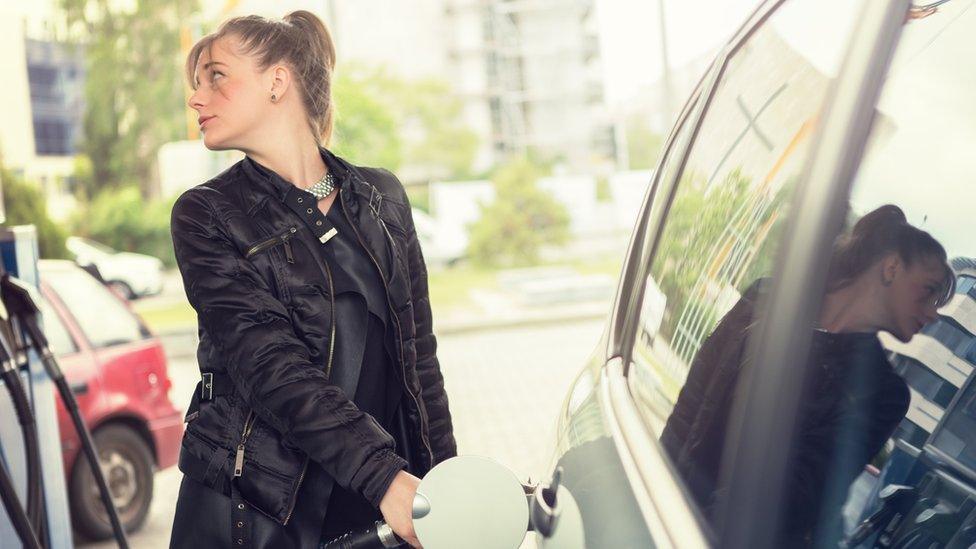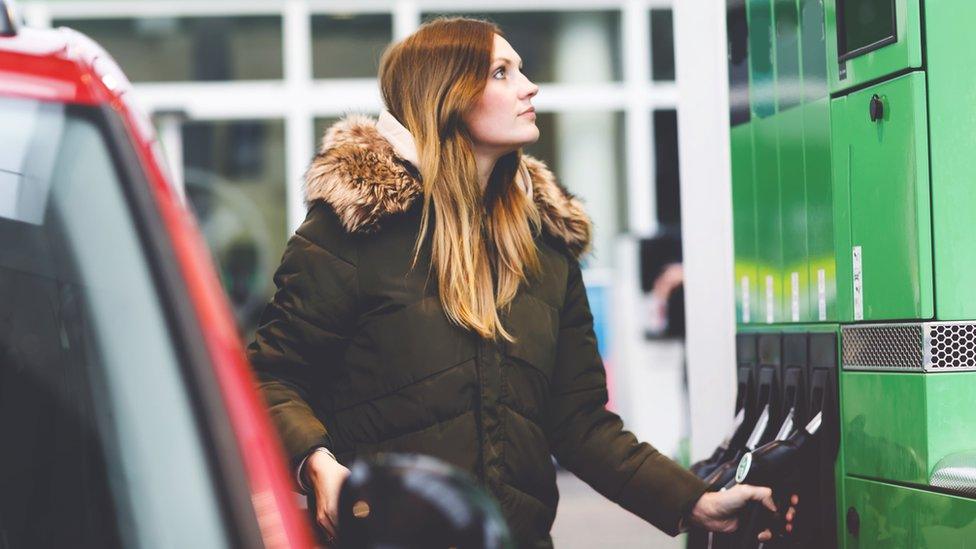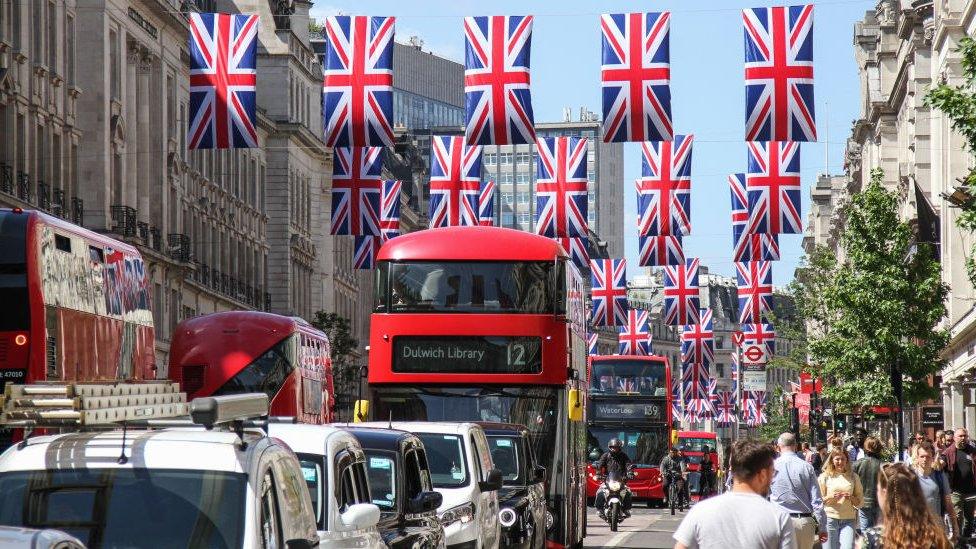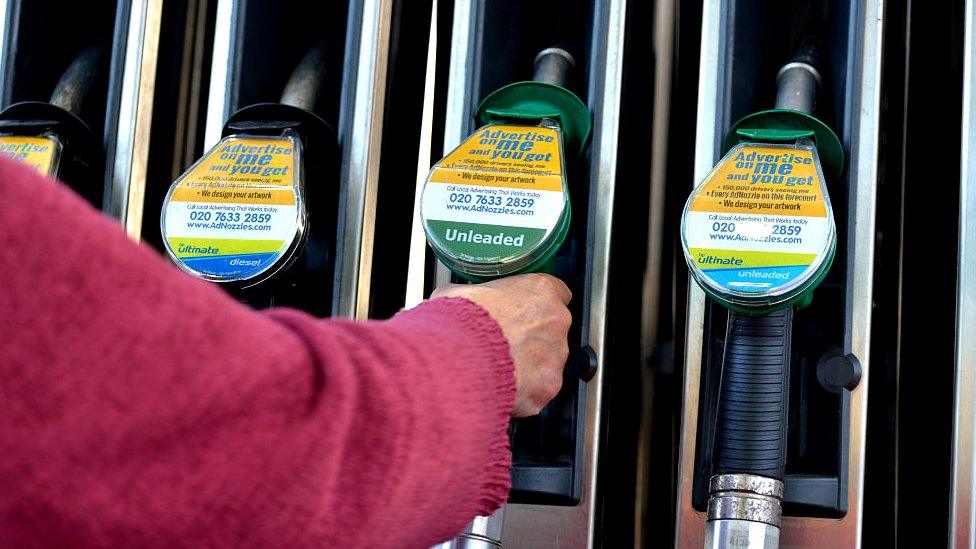Fuel prices: Filling a diesel car now costs a record £100
- Published

Filling the tank of a diesel car now typically costs more than £100 after fuel prices hit record levels.
The average price of diesel in the UK rose to 182.59p a litre on Sunday, according to the AA.
At the same time, petrol hit a new record of 172.73p a litre, it said.
These rises mean drivers will pay more at the pump ahead of half-term getaways or trips over the four-day Platinum Jubilee bank holiday which begins on Thursday.
Filling the average 55-litre tank with diesel costs £100.42 and petrol £95, the AA said.
RAC fuel spokesperson Simon Williams said: "With crude oil prices consistently above $115 a barrel last week, worse is sadly yet to come, just in time for the Jubilee bank holiday".
He said petrol was now more expensive than diesel to wholesalers, so retailers were taking smaller margins on petrol but larger ones on diesel.
"If the wholesale price of petrol stays above diesel, we ought to see the current 10p-a-litre gap in average petrol and diesel forecourt prices narrow," he said.
"If this doesn't happen diesel drivers will be getting a raw deal, and with prices at these historic highs, every penny matters to drivers."
The price of Brent crude oil - the global benchmark for prices - has soared in recent months, after Russia's invasion of Ukraine raised concerns of potential global supply issues.
Fuel prices had already been rising after economies reopened from coronavirus lockdowns, prompting a surge in demand.
A month ago, diesel across the UK averaged 176.47p a litre and 131.64p a litre a year ago, the AA said. Meanwhile petrol a month ago cost an average of 162.40p a litre and 129.31p a year ago, it added.
"With the cost of filling up now above £100, what had once been a 'dash for diesel' among UK car owners is rapidly becoming the death of diesel," said Luke Bosdet, the AA's spokesman on pump prices.
"Diesel's new record price is the latest nail in the coffin of the diesel car, after it had been demonised for its emissions in an urban environment.
"However, a diesel car's 15%-20% better fuel consumption compared to a petrol equivalent out on the open road means less CO2 emissions and would make it more attractive were it not for the current higher cost of refuelling," Mr Bosdet said.
Related topics
- Published13 May 2022

- Published30 May 2022

- Published14 August 2023
